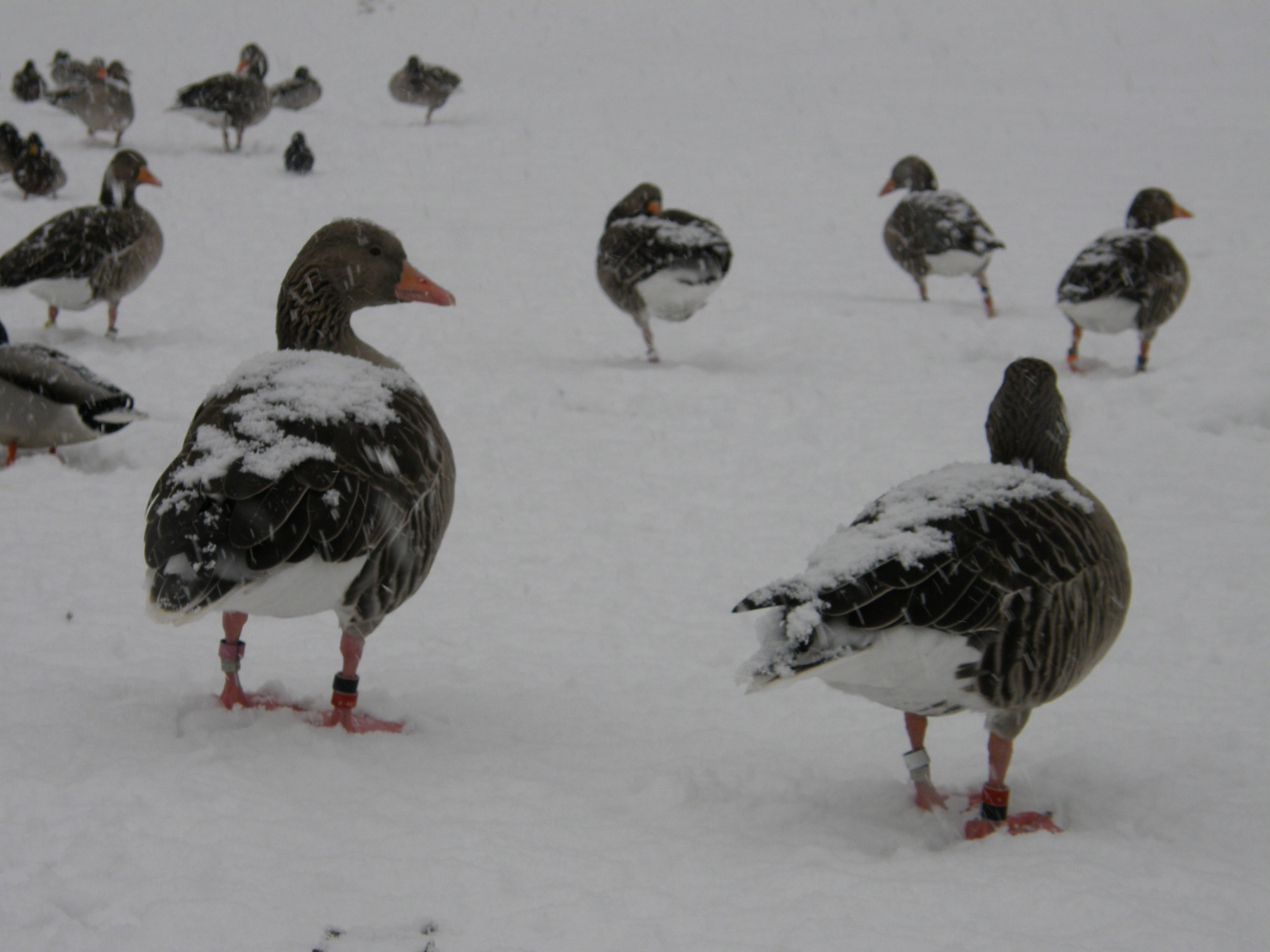
Geese lower their body temperature and heart rate during winter
A new study from Anglia Ruskin University has revealed that geese reduce their heart rate and body temperature in order to endure freezing cold weather.
“We were interested in how geese regulate their metabolic rate and therefore energy expenditure over the annual cycle, and in particular how they deal with the harsh winter months,” said lead author Dr. Claudia Wascher.
As endotherms, birds have the ability to regulate their core temperature, and they typically do so in colder weather by expending more energy.
Geese have an alternative way of dealing with the cold that the experts refer to as “winter hypometabolism,” a condition characterized by a lower heart rate which allows the birds to tolerate a lower core body temperature.
The research team focused its study on 25 wild greylag geese. They equipped the birds with small transmitters to measure body temperature and heart rate over 18 months. The researchers used the heart rate measurements to estimate the energy expenditure of the geese.
The experts found substantial seasonal changes of heart rate and body temperature in all 25 geese, with highs in the summer and lows in the winter. During December and January, the average heart rate was 22 percent lower than the summer peak. In addition, the average body temperature dropped by 1 degree Celsius from summer to winter.
“In order to cope with the challenges of low ambient temperatures and food shortage in winter, it is known that some non-hibernating mammals, such as red deer or Alpine ibex, reduce their energy expenditure in winter and function with lower body temperatures,” said Dr. Wascher. “Our research shows that birds, such as these greylag geese, adopt similar strategies.”
Dr. Wascher explained that birds at the research station are fed all year long, and so a lack of food did not influence body temperature and heart rate. She said that the number of daylight hours combined with the ambient temperature were found to be the main determining factors of energy expenditure.
“Our study helps us to gain an understanding of how individuals regulate their physiology in order to adapt to environmental factors,” said Dr. Wascher. “Strikingly it shows similarities in these mechanisms between mammals and birds, despite their large genetic differences.”
The study is published in the journal Scientific Reports.
—
By Chrissy Sexton, Earth.com Staff Writer
Image Credit: Dr Claudia Wascher, Anglia Ruskin University












